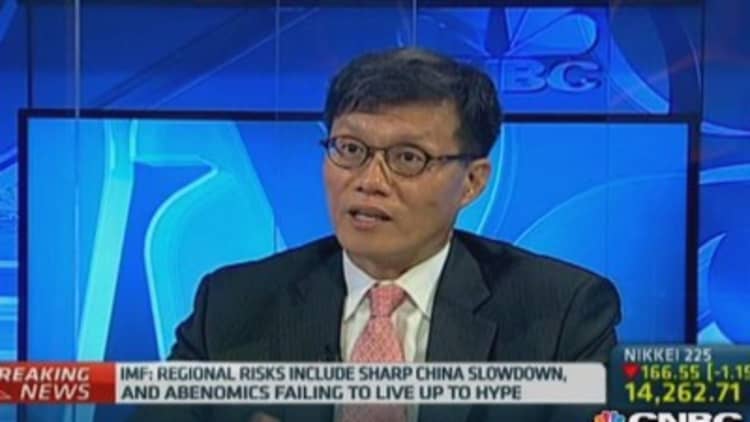China plans to get tougher on loans for iron ore imports as concerns grow that steel mills are using import loans to stay afloat in defiance of policies to reduce overcapacity in heavily polluting and lossmaking industries.
The China Banking Regulatory Commission warned banks to tighten controls over letters of credit for iron ore imports in a document that caused iron ore futures in China to drop 5 per cent on Monday. Rumours of the stricter measures, which are expected after the May 1 holiday, have been circulating in China for at least two months, after a hasty stock sale caused ore prices to tumble in late February.
Steel mills and traders have used iron ore imports to raise money as other sources of credit dry up, in yet another channel for off-book or "shadow" financing. Part of the attraction of the practice is that mills benefit from lower international interest rates compared to those in China.
Chinese firms have developed a number of creative channels for raising money thanks to years of capital controls meant to starve the real estate sector of speculative funds. But the bulk and difficulty of transporting iron ore makes it a cumbersome material for raising money, limiting its flexibility as a financing tool compared with copper or gold.
Read MoreChina to overtake US economy; India trumps Japan
Regulators are worried that the collapse of a heavily indebted mill could endanger a chain of local bank branches and even local governments, since steel mills are often the largest employers, taxpayers and debtors in their area. A case in point is Haixin Steel, also known as Highsee, which the local government in Shanxi province is trying to save.
"Because of the difficulty getting funding, steel mills need to think of all types of methods including letters of credit. We do not think this is against any regulations, they need to do what they need to do," Qu Xiuli, vice secretary-general of the China Iron and Steel Association, told reporters on Monday.

Iron ore stocks at Chinese ports are at 109.55m tonnes, data from Steelhome showed on Friday, historically high in absolute terms but still relatively low in terms of the size of the industry's import demand.
More from the FT:
- Steel plants cast doubt on China emissions
- China fears trigger dramatic drop in copper
- Haixin default to test Beijing's resolve
Data from the first quarter of the year show that China is on track to produce 822m tonnes of steel this year, a rise of 5.5 per cent from last year's output, despite the rising debt levels, increased financing costs and the prospect of more environmental regulation.
More capacity is still being built, lamented CISA vice-chairman Zhang Changfu, further squeezing margins in the industry.
"With the industry in such a state, how can new capacity still be built?" Mr Zhang mused at CISA's quarterly press conference.
The extra capacity flies in the face of a political campaign to close some polluting plants in Hebei province, which surrounds Beijing, to meet targets meant to reduce pollution around the capital. The trade-off for Hebei, which fears the loss of jobs and local tax income, is greater regional integration with Beijing and Tianjin, a large northern port city.
Read MoreUS offers $5 million bounty for China businessman
Hebei has trumpeted the destruction of steel mills to show its willing co-operation with the targets. First quarter data from Hebei show some drop-off in steel output, having a negative impact on provincial GDP growth, although steel industry sources say the plants that were demolished were already idle due to an inability to repay debt.
Zhang told reporters to "believe the Hebei government's statistics" when asked how much operating capacity had actually been shut. He refused to specify where the new capacity was under construction, calling it a "sensitive question".

